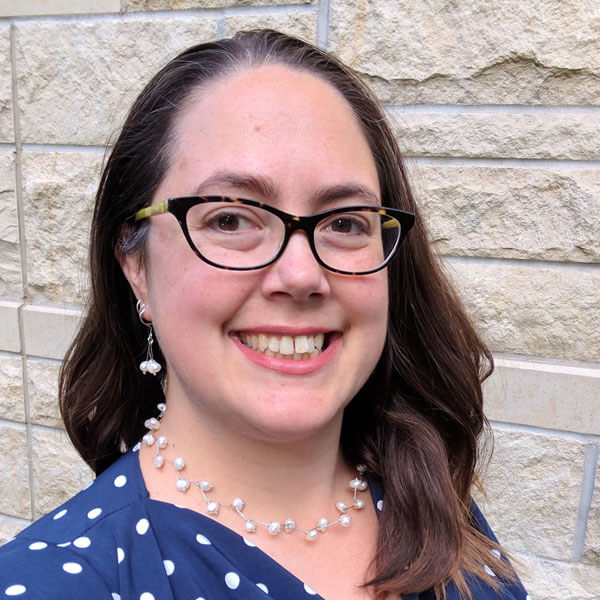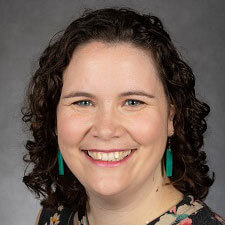Professional Development for Emerging Education Researchers (PEER)


Professional Development for Emerging Education Researchers (PEER)
- RIT/
- Center for Advancing Scholarship to Transform Learning/
- Programs/
- Professional Development for Emerging Education Researchers
PEER is designed for emerging education researchers interested in expanding their theoretical or methodological expertise.
Through peer and near-peer exchange, PEER helps faculty, postdocs and graduate students through field schools, intensive workshops, research projects, mentoring, and community involvement. Many continue on after taking the program, doing research in working groups, submitting papers for peer reviewed publication or designing research projects with others. PEER focuses on Discipline-based Education Research, advancing both scholarship and teaching goals that are valued at all types of academic institutions.
Who Benefits From the PEER Program?
PEER participants come from a wide range of science backgrounds and professions. Participants include:
- discipline-based education researchers looking to expand their methodological repertoire
- disciplinary faculty just getting started on the scholarship of teaching and learning
- education faculty looking to join a research group and access video-based data
- faculty development experts learning to mentor faculty through scholarship of teaching and learning (SoTL) projects
- grad students and postdocs who need mentoring and community support for their research projects
- undergraduate students who attend field schools with their advisors
PEER Workshop Topics
The available workshops span DBER and education specific, physics specific and general audiences beyond education. Most are 90 minutes - 3 hours in length, and a few can be expanded to a full day or compressed into 50 minutes. Full field schools are recommended to be 1-2 morning and 1-2 afternoon sessions. Workshops include topics with several specific areas covered within each of the following:
- Research Life
- Ethics
- Getting Started with Research Design
- Analysis Methods
- Research Communication
- Teaching Workshops
- Colloquium-style Talks
Those interested in hosting a PEER workshop can choose from one of the many topics offered.
Key: (e) denotes DBER & education specific; (g) denotes for general audiences, not just education; (p) denotes physics specific
- Research life
- (e) Field school principles: writing-centric, community focused, experiential, co-generative
- (g) Personal professional paths: how we got to here
- Ethics
- (g) Collaboration and working groups
- (e) Human subjects and IRB
- (g) Authorship discussions
- Getting started with research design
- (e) Research questions
- (e) Data and access
- (e) Case-based vs. recurrence-based research
- (e) Finding a working group
- (g) What comes next: planning your research project
- Analysis methods
- (e) Coding classroom video and Periscope
- (e) Emergent coding in interviews and transcripts
- (e) Doing interviews
- (e) Basics of quantitative analysis with R
- Research communication
- (g) Doing lit reviews
- (g) Paper structure
- (e) Choosing a journal home
- (g) Talking about your research with skeptical audiences
- (g) Making beautiful posters
- Teaching workshops
- (g) Listening to students: Periscope and Pause
- (g) Fostering inclusivity and equity in the classroom
- Colloquium-style talks
- (e,p) Eleanor Sayre: https://zaposa.com
- (p) Scott Franklin: granular physics
Most of these are 90mins - 3h long, though a few can be expanded to a full day or compressed into 50 minutes. For a full field school, we recommend 1-2 morning sessions and 1-2 afternoon sessions.
Possible Schedules
- Day 1:
- (e) Field school principles
- (e) Research questions
- (g) Collaboration and working groups ethics
- Day 2:
- (e) Case-based vs. recurrence-based research
- (e) Data and access
- (e) Human subjects and IRB
- (g) Fostering inclusivity and equity in the classroom
- Day 3:
- (e) Coding classroom video and Periscope
- (e) Emergent coding in interviews and transcripts
- OR (g) Listening to students: Periscope and Pause
- Individual working time OR time off
- Day 4:
- (g) Authorship discussions
- (g) Doing lit reviews OR Paper structure
- Local resources -- in collaboration with local organizers
- (g) Personal professional paths: how we got to here OR colloquium-style talk
- Day 5:
- (g) Talking about your research with skeptical audiences
- (g) Making beautiful posters
- (g) What comes next: planning your research project
Participant Testimonials
Here’s what Cologne, Germany participants are saying:
“In fact, you can profit on all levels, because everybody needs time and space for re-reflection, that is the most valuable thing to do. It is an advantage, that the peers form a heterogenous group, including students and faculty members, so everybody learns more from one another.”
Why participants recommend PEER to their colleagues:
- “You learn a lot without being overwhelmed or overburdened by things that are far from reality. Things are very important, nevertheless well presented.”
- “You feel free to utter your questions and opinions.”
- “It provides soft skills development and project work skills.”
- “The focus is on collaboration and networking, which is great.”
- “You connect with people who share topics/fields/interests or even better - they have other ideas!”
- “You learn amazing things with great methods and teachers, views which you can benefit from. You not only learn for research BUT for life!”
- “It helped a lot in the development of my question.”
- “It helped me to think in more easy and active ways. Furthermore, it helped to build a community.”
Publications and Presentations
A compiled list of publications and presentations by individuals across the PEER host sites are available showing individual and collaborative research being done.
Contacts
Professor
Department of Physics
Kansas State University
esayre@phys.ksu.edu
785-532-2124
Associate Professor
Department of Physics
DePaul University
mkustus1@depaul.edu
773-325-0389


